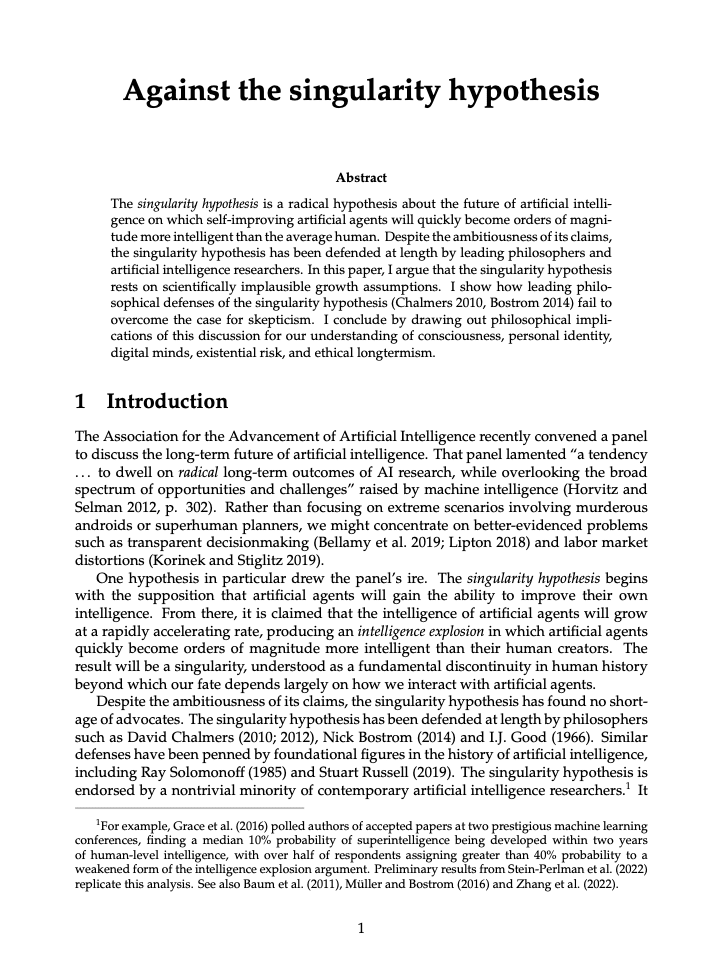Against the singularity hypothesis
David Thorstad (Global Priorities Institute, University of Oxford)
GPI Working Paper No. 19-2022; published in Philosophical Studies
The singularity hypothesis is a radical hypothesis about the future of artificial intelligence on which self-improving artificial agents will quickly become orders of magnitude more intelligent than the average human. Despite the ambitiousness of its claims, the singularity hypothesis has been defended at length by leading philosophers and artificial intelligence researchers. In this paper, I argue that the singularity hypothesis rests on scientifically implausible growth assumptions. I show how leading philosophical defenses of the singularity hypothesis (Chalmers 2010, Bostrom 2014) fail to overcome the case for skepticism. I conclude by drawing out philosophical implications of this discussion for our understanding of consciousness, personal identity, digital minds, existential risk, and ethical longtermism.
Other working papers
Population ethical intuitions – Lucius Caviola (Harvard University) et al.
Is humanity’s existence worthwhile? If so, where should the human species be headed in the future? In part, the answers to these questions require us to morally evaluate the (potential) human population in terms of its size and aggregate welfare. This assessment lies at the heart of population ethics. Our investigation across nine experiments (N = 5776) aimed to answer three questions about how people aggregate welfare across individuals: (1) Do they weigh happiness and suffering symmetrically…
The Conservation Multiplier – Bård Harstad (University of Oslo)
Every government that controls an exhaustible resource must decide whether to exploit it or to conserve and thereby let the subsequent government decide whether to exploit or conserve. This paper develops a positive theory of this situation and shows when a small change in parameter values has a multiplier effect on exploitation. The multiplier strengthens the influence of a lobby paying for exploitation, and of a donor compensating for conservation. …
How to resist the Fading Qualia Argument – Andreas Mogensen (Global Priorities Institute, University of Oxford)
The Fading Qualia Argument is perhaps the strongest argument supporting the view that in order for a system to be conscious, it does not need to be made of anything in particular, so long as its internal parts have the right causal relations to each other and to the system’s inputs and outputs. I show how the argument can be resisted given two key assumptions: that consciousness is associated with vagueness at its boundaries and that conscious neural activity has a particular kind of holistic structure. …

